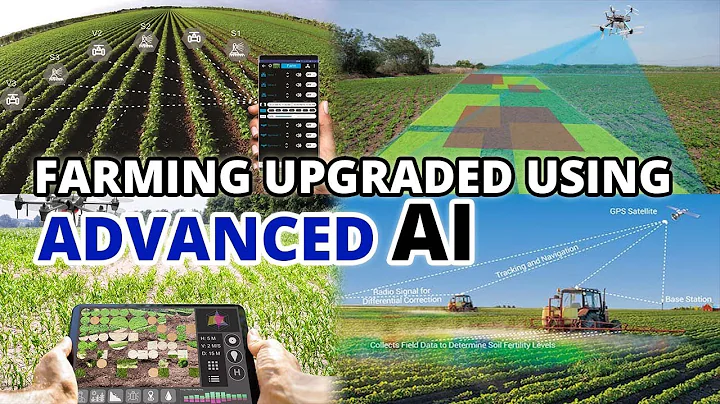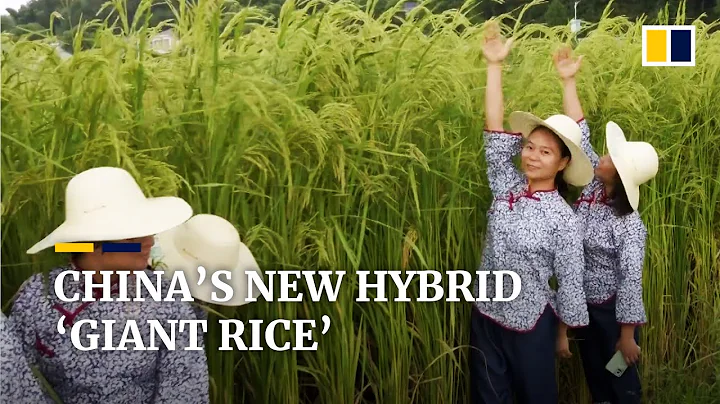Rice fields, the symbol of “rich” acupoints!
netizens asked: What impact does the front door of the house have on the paddy fields?
The simple understanding and answer is: China is a large agricultural country. Throughout history, soil has been regarded as a symbol of wealth, the source and guarantee of life, and the lifeblood.
There are no unfavorable Feng Shui writings about paddy fields in front of the house. There are only writings that describe it as "Bancang Water", "Making Fortune Water", "Gathering Money Water", "Big Granary", "Big Golden Basin"...
"There is a field in front of the house and a garden behind the house"! It is the capital used by the developed small farmer economy class to show off their glory and merit. For thousands of years in China, the developed small peasant economic class in feudal society has struggled throughout their lives, even for generations, to realize a pastoral economic model of "fields in front of the house and gardens behind the house". Bo.
For thousands of years, the deep-rooted ideological influence of small-scale peasant economy and society is reflected in Feng Shui culture. No matter how "high", "big" and "high" is expressed in Feng Shui culture, no matter how "unpredictable" is expressed, the small-scale peasant economy cannot be shaken off. The limitations of the given shackles!

"The 'canglin' is solid and the world is safe." Food has been the foundation of national governance and security throughout history. It is not a small matter, but a major matter, a major matter related to the national economy and people's livelihood. Farmland is an important prerequisite and guarantee for food production. Food production cannot be separated from farmland, an important "hotbed". Protecting farmland means protecting the national economy and people's livelihood, and protecting people's lives. For farmland that can protect the national economy and people's livelihood, and protect people's lives! The Feng Shui writings of the past dynasties only have praise for farmland and have no derogatory remarks. Feng shui writings will denounce the act of destroying farmland. According to Feng Shui writings, any words that are unfavorable to farmland will definitely offend the power of heaven, make heaven angry and people resentful, and cause no peace. Therefore, no matter how you look at the farmland, Feng Shui will only praise it, not demote it, and will always talk about "richness and honor, wealth and honor".
In most cases, the Feng Shui taboos related to rice fields should be related to the ideological basis reflected in the following three folk sayings!
1. “I would rather have thousands of acres of fields in front of my house than mountains in front of my house”!
Deep in the mountains, the mountains are rolling and it is difficult to find a piece of flat land in the mountains. As long as there are conditions for farming, the ancestors will cultivate it into cultivated land. Many families, in order to make way for farmland, have to build their houses on steep slopes. When the homestead is not wide enough, the house pillars are placed on the ground outside the homestead, forming a very distinctive stilted building in southwest my country and western Hunan.
The houses of mountain people are usually built against the mountains. There must be mountains behind the houses. If there are mountains in front, it means that the place is very narrow. Not only is the view not wide, you have to climb mountains when going out, but also life is extremely difficult.
"I would rather have thousands of acres of fields in front of my house." This is just an exaggeration. There are acres of rice fields in mountainous areas and open land. The best place is to have dozens of acres of fields. The open space in front of most people's homes is just a few acres of land.
Living in a mountainous area and having fields in front of your house, whether it is your own field or someone else’s, is better than having a mountain blocking your house. At least you don’t have to climb hills when you go out, and you will feel much more comfortable.
Having fields in front of your house, especially those owned by other people, is indeed a bit troublesome, mainly because of the troublesome raising and management of poultry and livestock. Poultry and livestock like to destroy crops in other people's fields, which can easily lead to quarrels. However, the maturity period of crops is only more than a month. During this time, it is not a big problem to build bamboo fences and wooden fences to corral poultry and livestock. It is easier than climbing uphill every day when going out.
In fact, people in mountainous areas have long been accustomed to living with fields in front of their houses, and have developed a set of management methods for poultry and livestock. Although there are quarrels, they are not dominant.
If people in the mountains plant rice fields in front of their houses, even if some poultry eats them, the loss should be far less than in rice fields with no houses around them. In the past, there were many birds and wild boars in the mountains, and the intensity of the damage was far several times greater than that of poultry and livestock.The rice fields in the mountains need to be erected with sheds and need to be guarded 24 hours a day in order to be able to harvest. Sometimes, even if someone is guarding the rice fields, it will be a disaster. But as long as there are people living around the rice fields, such disasters can be avoided. Therefore, for mountain people’s rice fields, if there is a house next to the field, the harvest will be the most stable.
In places where people live, the seedlings in the rice fields next to them obviously grow better. Compared with places in the mountains where no one lives, the seedlings in the rice fields obviously grow worse. These are the main reasons why people like to mix houses and farmland! Ancient people would consider this phenomenon to be "dragon energy", "popular energy" and "earth energy"! Experienced farmers believe that if nothing happens, the seedlings will grow better if they often go to the edge of the field. From a modern point of view, these phenomena have a very scientific reason. Human living and activities require combustion. This kind of combustion can improve the slight temperature difference in the local terrain during the low temperature period in early spring. The carbon dioxide exhaled by humans happens to be a good source of air "fertilizer" for plants...
2. "I would rather have paddy fields in front of my house than dry soil in front of my house"!
This common saying is usually spread in rice fields. Paddy fields mainly grow rice, and some vegetables and rapeseed can be grown in winter. Fruits and vegetables are grown in dry soil, but rice cannot be grown. Only grains other than rice can be grown.
I would rather have paddy fields in front of my house than dry soil in front of my house. There are four issues to explain.
The first health issue. This is a minor issue. Nowadays, some people have paddy fields in front of their houses and are afraid that when other people apply farmyard manure, the house will smell bad. In fact, there is a big difference between the application of farmyard manure in paddy fields and the application of farmyard manure in dry soil. Farmyard manure is applied to paddy fields once a year, and the smell is only temporary. However, when farmyard manure is applied to dry soil, it will recur many times throughout the year, causing the odor to linger for a long time. The same farmyard manure, when applied to dry soil, emits an obviously strong and irritating odor!
The second issue is the feeding and management of poultry and livestock. This is still a minor issue. A variety of crops are grown in dry soil all year round, and poultry and livestock are more difficult to manage. However, paddy field cultivation has a seasonality, which is when the rice matures. Poultry and livestock need to be managed, and there is no need to worry about other times.
Thirdly, in the dry season, the sun shines on the dry land and the heat is baking, which makes people unbearable. During the dry season, dust will fly in the dry soil. Houses near the dry soil will have dust on their roofs, and even the furniture in the home will be covered with dust. In rice fields, this kind of situation is almost impossible!
The fourth is the issue of building in front of the house. This is the issue that rural people are most concerned about and the most important issue. In the past, there was a rule in the countryside that no matter how wealthy the family was, they could not destroy fertile farmland. Fertile land is a field used to grow food. In rural areas during the farming era, fields were the lifeblood of farmers and the guarantee for their survival. "Save a small amount of land for your descendants to cultivate" refers to farmland, and no one can destroy farmland.
People believe that destroying fertile farmland is not only an act of ruining the family, but also an act of moral corruption, which is more serious than destroying roads and bridges. Therefore, in the past, no matter how wealthy the family was, they would not dare to destroy the fields to build houses or destroy the fields to plant trees.
Dry land is different. Owners of dry land can use it to build houses, build shacks, and plant trees. Rural people believe in Feng Shui. People believe that if others build houses, build shacks, and plant trees on dry land, they cannot stop it because it belongs to other people, and it will be detrimental to the Feng Shui of their own houses.
It is precisely because of the above reasons, especially the fourth reason, that people in rural areas would rather have paddy fields in front of their houses than dry soil in front of their houses.
3. "It is better to have a small presence in front of the house than to have a field in front of the house"!
Through the explanation of the above two common sayings, there is a field in front of the house, whether it is your own family's field or someone else's field, it does not hinder it. In real life in rural areas, this situation is relatively common, both in the past and now. Is this saying wrong?
In fact, this saying is not wrong, but the perspective of considering the problem is different.
This common saying refers to the great plains and large villages, which are the "rows upon rows" of villages in the past, rather than to small natural villages and single-family houses.
The empty space in front of the house referred to in this proverb refers to the open space in front, which is commonly known as "Mingtang". "Ren's field" refers to other people's fields, not your own. There are two main reasons why this saying appears in
.
One is the security issue. There is a field in front of the house. When looking from the outside to the inside of the village, there is no obstruction at all. The first thing that attracts attention is the houses on the outside of the village. From the perspective of the village where the house is located, if there is a field in front of the house, it must be at the front line of the village. In ancient times, society was in turmoil, soldiers and bandits were rampant, and people were in dire straits. These gangsters commit all kinds of crimes and break into villages. The first families to suffer are often the families living at the front of the village, without even a chance to escape.
For those whose houses are in the middle of the village, and whose houses are adjacent to the houses of neighbors on the front, back, left and right, the space for "exit" is limited, but the space for "entry" is also limited. It cannot be very large and is often relatively small. In an emergency situation involving soldiers and bandits, if you have enough time, the chance of evasion is relatively large. In the past, elderly people in rural areas often heard people talk about "hiding from soldiers" and "hiding from bandits", referring to this kind of situation.
The second reason is for Feng Shui considerations. In the past, when people built houses, they had relatively high requirements for the surrounding environment, topography and other factors. There were so-called "three requirements and six things". Among them, the "six things" were divided into "six things inside" and "six things outside". People believe that in a village, the row of houses in front often blocks many unfavorable factors from the houses behind, just like how many places build screen walls at the entrance gate. Because of this, rural people used to believe that within a village, the houses in the village were better than the houses in front of the village. Of course, this was an unrealistic idea in rural areas in the past, but this idea was still deeply rooted in rural areas at that time.
In short, to understand the folk saying "It is better to have a small presence in front of the house than to have a field in front of the house", we must combine the social background of that era to understand the mystery hidden in it. If we only take it literally, we will deviate from the original meaning of the saying and even draw wrong conclusions!






![Agricultural Commodity Chains & Economies of Scale [AP Human Geography Unit 5 Topic 7] - DayDayNews](https://i.ytimg.com/vi/kT9_85P0G1c/hq720.jpg?sqp=-oaymwEcCNAFEJQDSFXyq4qpAw4IARUAAIhCGAFwAcABBg==&rs=AOn4CLBh7PCxNCIfuSi0PDhCnV3sJRxcSw)














